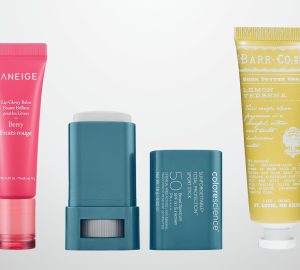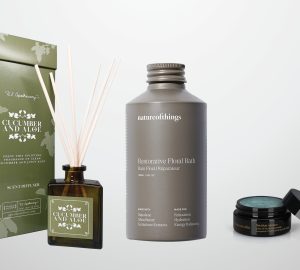No matter how small your purse is, there are just some items you can’t live without when you leave the house. For me, that includes sunglasses, lip gloss and a makeup mirror. But every woman has her own checklist, especially when it comes to beauty products. That’s why we’ve gathered a few of our favorites that are both compact and cool.
1. Generally speaking, women can resume cosmetics use one week after surgery. Depending on the nature of the surgery, scarring and discoloration are two of the most common imperfections. Start your post-op makeup routine by using a foundation or concealer devoid of fragrance or alcohol. These ingredients can irritate the skin and delay healing. Stick with water-based or mineral products, as they’re easy to wipe off if skin becomes irritated.
Pro Tip: Make sure SPF is part of your beauty routine, as post-op skin is extremely vulnerable to sun exposure.
2. Once you identify the color of your scars, choose a concealer the exact opposite color. This is where your freshman art class color wheel will come in handy. For instance, if your scar is red, choose a concealer that is green to cover it. This will create a camouflage effect, rather than turn your scar an unattractive shade of pink.
Pro Tip: If you have a keloid or raised scar, match the concealer to your skin tone. In this case, do not use red, green or purple concealers; they will only emphasize the scar.
3. Use a powder puff to press the powder (that matches your skin tone) over the concealer. Work the powder on top, and press it firmly over the scar. Your coverage will last much longer than dragging a large brush over your entire face.
4. If your usual cosmetics don’t quite give you the coverage you need, Jane Iredale makeup is specifically formulated to reduce the appearance of post-op facial imperfections. Other mineral makeup brands like Bare Escentuals are great options thanks to their protective and effective ingredients, like iron oxides used to keep skin looking natural and titanium dioxide to protect sensitive skin.
5. It’s important to remember that caring for your post-op skin isn’t just about what you do to your skin, but what you don’t do. Avoid drying cleansers, sun exposure, extended periods of time in water, and irritating products that contain lavender or eucalyptus. All these factors can delay the healing process and leave you with severely irritated skin—a big no-no for vulnerable skin.








